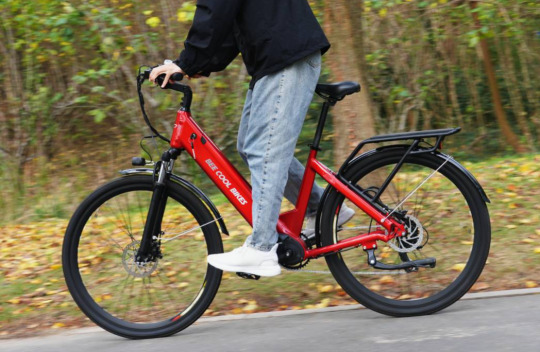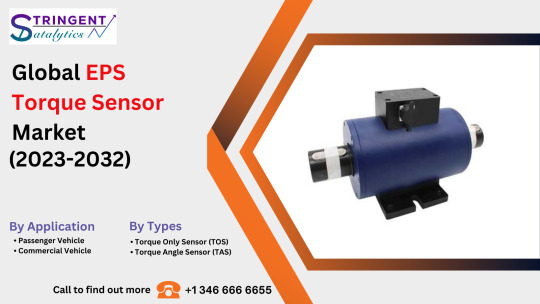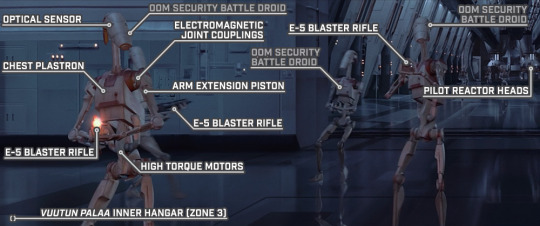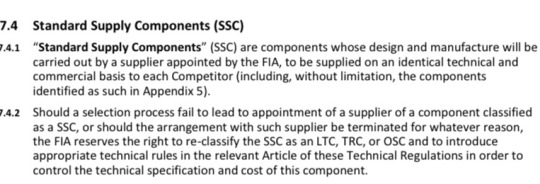#torque sensor
Explore tagged Tumblr posts
Text

Bee Pacer: Redefining Urban Commuting with Power, Comfort, and Style In the fast-evolving world of electric bikes, BeeCool Bikes has consistently stood out as a brand that marries innovation with practicality. Our latest offering, Bee Pacer, is no exception. Designed for urban explorers, commuters, and adventure seekers alike, this mid-drive electric bike combines cutting-edge technology with sleek aesthetics to deliver an unparalleled riding experience. Whether you’re navigating city streets, tackling hills, or cruising along scenic paths, the Bee Pacer is engineered to elevate every journey. Let’s dive into what makes this e-bike a game-changer.
#bee pacer ebike#beecool#beecoolbikes#mid drive motor#mid drive#torque sensor#ebikefun#ebike adventures#ebikelife#ridemorebehappy#color display#factory direct sale
1 note
·
View note
Text
Top Torque Sensor Manufacturers
Stark Embsys, the leading Torque Sensor Manufacturer, offers precision measurement solutions like Industrial Load Cells, Digital Indicators, Master Load Cells, Calibration Machines, and Torque Sensors. Our expertly organized and maintained manufacturing unit ensures high-quality products, leading to our success and growth. With a track record of fulfilling bulk orders with guaranteed quality, we maintain exceptional standards. Contact us now to experience our top-notch services and products. Address: B-40/9, Mayapuri Industrial Area, Phase-1, New Delhi-110064.
1 note
·
View note
Text
Torque Sensor Market: Current Analysis and Forecast (2024-2032)
According to the UnivDatos Market Insights analysis, the increasing adoption in the automotive industry for fuel-efficient vehicles, the rising demand for precise measurement in industrial automation, and advancements in medical devices requiring high-precision torque control will drive the global scenario of the Torque Sensor market. As per their “Torque Sensor Market” report, the global market was valued at USD 7.8 Billion in 2023, growing at a CAGR of 5.8% during the forecast period from 2024 - 2032 to reach USD XX Billion by 2032.
The torque sensor market is witnessing robust growth, driven by the increasing demand for precise torque measurement across various industries such as automotive, aerospace, and industrial automation. In the automotive sector, the need for accurate torque measurement is paramount for optimizing engine performance, improving fuel efficiency, and ensuring the reliability of vehicle components. The rise in electric and hybrid vehicle adoption further amplifies this demand, as these vehicles require advanced torque measurement solutions to manage electric motor performance and battery efficiency. Technological advancements in sensor design, including wireless and non-contact torque sensors, are enhancing the efficiency and performance of these applications.

In the industrial sector, torque sensors are integral to the automation and robotics industries, where precision and efficiency are critical. The adoption of Industry 4.0 practices has led to increased utilization of torque sensors in manufacturing processes to ensure operational accuracy and product quality. Additionally, the aerospace and defense sectors rely on torque sensors for testing and monitoring aircraft components, ensuring safety and performance standards are met. These sectors' focus on innovation and high-performance standards continues to drive the adoption of advanced torque sensor technologies.
Looking forward, the torque sensor market is poised for sustained growth. Companies are investing heavily in research and development to create innovative, cost-effective torque sensors that cater to the evolving needs of various industries. Expansion into emerging markets, particularly in the Asia-Pacific region, offers significant growth potential due to rapid industrialization and increasing automotive production. Moreover, strategic partnerships and collaborations are facilitating the development of integrated solutions, enhancing value for end-users. Overall, the market's future looks promising with continued technological advancements and strategic investments from key industry players.
Increasing Adoption in the Automotive Industry:
The automotive industry is a significant driver for the torque sensor market. As the demand for high-performance and fuel-efficient vehicles increases, manufacturers are integrating advanced torque sensors to monitor and optimize engine and drivetrain performance. These sensors play a crucial role in electric vehicles (EVs) and hybrid vehicles, which require precise torque measurements to enhance energy efficiency and performance.
Example: The European Union's "Green Deal" and the accompanying "Fit for 55" package aim to reduce greenhouse gas emissions by 55% by 2030. These policies include stringent regulations on vehicle emissions and fuel efficiency, pushing automakers to adopt advanced technologies, including torque sensors, to meet these targets.
Request Free Sample Pages with Graphs and Figures Here https://univdatos.com/get-a-free-sample-form-php/?product_id=63672
Growing Demand in Industrial Automation:
Industrial automation is another key driver for the torque sensor market. With the rise of Industry 4.0, there is a growing need for accurate and real-time torque measurement in various automated processes. Torque sensors are essential in ensuring the proper functioning and safety of automated machinery, leading to improved productivity and reduced downtime in manufacturing and production facilities.
Example: The German government's "Industrie 4.0" initiative supports the widespread adoption of advanced manufacturing technologies, including torque sensors. This policy includes financial incentives and subsidies for companies investing in automation and smart factory technologies, encouraging the integration of torque sensors in industrial applications.
Advancements in Medical Devices:
The medical sector is increasingly utilizing torque sensors in various applications, such as robotic surgery, prosthetics, and rehabilitation devices. The precise measurement of torque is critical in these applications to ensure the safety and effectiveness of medical devices. As the healthcare industry continues to advance, the demand for high-precision torque sensors is expected to grow significantly.
Example: The U.S. Food and Drug Administration (FDA) has implemented policies that support the development and approval of advanced medical devices, including those that use torque sensors. The FDA's Breakthrough Devices Program, for instance, provides expedited review and approval processes for innovative medical technologies, encouraging the adoption of advanced sensors in medical devices.
Conclusion
The torque sensor market is experiencing significant growth driven by three major factors: the increasing adoption in the automotive industry, the growing demand in industrial automation, and advancements in medical devices. Government policies play a pivotal role in accelerating this growth by providing regulatory support and financial incentives. The European Union's "Green Deal" and "Fit for 55" package are pushing the automotive sector towards greater efficiency and lower emissions, thereby fostering the adoption of torque sensors. Similarly, Germany's "Industrie 4.0" initiative is promoting the integration of advanced manufacturing technologies, including torque sensors, in industrial automation. In the medical sector, the U.S. FDA's supportive policies for innovative medical devices are encouraging the use of precise torque measurement technologies in cutting-edge medical applications. These combined efforts are shaping a robust and dynamic torque sensor market, poised for continued expansion and innovation.
Contact Us:
UnivDatos Market Insights
Email - [email protected]
Contact Number - +1 9782263411
Website -www.univdatos.com
0 notes
Text
Automotive Steering Torque Sensors Market is Estimated to Witness High Growth Owing to Increasing Demand

Automotive steering torque sensors play an important role in steering systems by directly measuring the rotational forces applied to the steering shaft. They are primarily utilized in advanced driver assistance systems such as electronic power steering, automobile stability control, and anti-lock braking systems. The growing emphasis on vehicle safety and introduction of autonomous driving technologies are expected to drive the demand for automotive steering torque sensors over the forecast period.
The Global Automotive Steering Torque Sensors Market is estimated to be valued at US$ 8589.78 Mn in 2024 and is expected to exhibit a CAGR of 7.9% over the forecast period 2024 to 2031.
Key Takeaways Key players operating in the Automotive Steering Torque Sensors are Robert Bosch Gmbh, Denso Corporation, Crane Electronics, Honeywell International, Sensor Technology, Valeo, TE Connectivity, Kistler Instruments Pvt. Ltd., Norbar Torque Tools Ltd., Bourns, Inc., Advanced Micro Electronics Co. Ltd., Methode Electronics, Inc., and others. The key players are focused on developing innovative torque sensors with enhanced accuracy and durability.
The Automotive Steering Torque Sensors Market Size is expected to create significant opportunities for automotive steering torque sensor manufacturers. Furthermore, the increasing adoption of autonomous vehicles will further propel the demand.
Globally, the Asia Pacific region dominated the market and is expected to exhibit the highest CAGR during the forecast period. China, Japan, and India have emerged as major markets for automotive steering torque sensors owing to increasing automotive production and sales.
Market drivers The increasing demand for advanced driver assistance systems in passenger and commercial vehicles is a major factor driving the growth of automotive steering torque sensors market. Features like stability control, traction control, anti-lock braking help in improving road safety. Furthermore, the growing adoption of electric power steering systems that utilize torque sensor technology is also fueling the market growth. Stringent safety norms especially in European and North American regions have further promoted the integration of torque sensors in vehicle steering systems.
PEST Analysis Political: The Automotive Steering Torque Sensors Market Size And Trends is governed by strict regulations regarding automotive safety and emissions. Manufacturers must comply with regulations for vehicle automation, driver assistance systems and functional safety standards.
Economic: The global economy recovery is driving automotive production and sales which is positively impacting the demand for automotive steering torque sensors. rising disposable incomes in developing countries is increasing vehicle ownership.
Social: Technology features such as driver assistance, autonomous driving, and connected vehicles are increasingly being adopted. Sensors play a key role providing input data to driver assistance systems. Safety and reliability are important considerations for consumers.
Technological: Advancements in sensor design, materials, and manufacturing processes are improving sensor accuracy, response time and durability. Technologies integrating multiple sensors and software are enabling advanced driver assistance and autonomous driving capabilities. Connectivity integration in sensors allows remote diagnostics.
In terms of value, Asia Pacific holds the largest share of the automotive steering torque sensors market due to high production volumes in China, India, Japan and South Korea. Europe is also a major region supported by strong automotive manufacturing presence in Germany, France, Italy and UK.
North America is anticipated to exhibit the fastest growth during the forecast period owing to rising demands for electric and autonomous vehicles in the US and Canada. Government mandates and investments to develop autonomous vehicle infrastructure will drive additional sensor needs in the region. Get More Insights On, Automotive Steering Torque Sensors Market About Author: Money Singh is a seasoned content writer with over four years of experience in the market research sector. Her expertise spans various industries, including food and beverages, biotechnology, chemical and materials, defense and aerospace, consumer goods, etc. (https://www.linkedin.com/in/money-singh-590844163
#Automotive Steering Torque Sensors Market Trends#Automotive Steering Torque Sensors Market Share#Automotive Steering Torque Sensors#Automotive Steering Torque Sensors Market
0 notes
Text
Torque is a quantity that cannot be ignored when describing a car's engine. Not only in the field of automobile engines, Torque appears in almost all fields and industries. For process monitoring, drive technology testing, and quality assurance, the use of Torque sensors solves efficiency problems. Join us to learn more about this type of sensor!
0 notes
Text
EPS Torque Sensor Market

0 notes
Text
Battle Droids Open Fire

STAR WARS EPISODE I: The Phantom Menace 02:02:27
#Star Wars#Episode I#The Phantom Menace#Battle of Naboo#Vuutun Palaa#Droid Control Ship#Lucrehulk-class LH-3210#starboard main hangar#inner hangar#Zone 3#unidentified battle droid#OOM security battle droid#optical sensor#electromagnetic joint couplings#pilot reactor head#chest plastron#E-5 blaster rifle#arm extension piston#high-torque motors
0 notes
Text
Website: http://www.loadcellsensor.com/
Address: Rm 1605, Ho King Commercial Center, 2-16 Fa Yuen St., Mongkok, Kowloon 999077, Hong Kong China
Phone: +86-19956502838
LCS Tech Co., Ltd is a Chinese manufacturer for strain gauge type load cell sensors,tension compression force transducers, reaction and rotary torque sensors.
#load cell sensor#tension compression load cell#multi-axis force sensor#rotary torque sensor#reaction torque transducer
1 note
·
View note
Text
Website: http://www.loadcellsensor.com/Products
LCS Tech Co., Ltd is a Chinese manufacturer for strain gauge type load cell sensors,tension compression force transducers, reaction and rotary torque sensors.
1 note
·
View note
Text
[155 Pages Report] According to MarketsandMarkets, the torque sensor market size is projected to grow from USD 6.8 billion in 2021 to USD 9.0 billion by 2026
0 notes
Link
Rotating Torque Sensors Market Research Study 2023 - Overview Rotating Torque Sensors market exhibits comprehensive information that is a valuable source of insightful data for business strategists during the decade 2019-2029. On the basis of historical data, Rotating Torque Sen
0 notes
Text
Forsentek Co., Limited supplys rotary torque sensors and reaction torque transducer for torque measurement in industrial field.
rotary torque sensor
1 note
·
View note
Text
Lil sketch comic and Some headcanon stuff for Torque again (ft team prime)




(Poor Bulkhead was an innocent bystander/lh)

(Torque’s Alt mode and her height in comparison to the team)
-sometimes Optimus and Ratchet slow dance, when everyone’s out of the base and its an off day. Which is rare but it happens (Sometimes Torque and Bumblebee find an excuse to rush everyone out of the base in slow days too, so their creators can have some peace and quiet for an hour or two)
- If they’re sent on patrol together and its boring, chances are Bumblebee is gonna challenge her sister to a race. And half of the time shes gonna complain (jokingly) it isn’t a fair race because his alt mode is basically made for speed. And The one time she did win she didn’t shut up about it for two days (they also got an earful from both their creators that day for getting caught racing on camera by a human)
- like she takes quite a bit after Ratchet in terms of mannerisms, she takes a bit after Optimus as well. Its not super noticeable but its there
Thats what lead the decepticons ultimately to connect the dots
Megatron was already aware Torque might be Ratchet’s kid because obviously she looks just like him, but he didn’t really care too much to use that as leverage. That until he saw she was acting a bit like Optimus as well
-Torque and Ratchet being first responder/medic bots are supposedly pretty strong because they are meant to basically drag a patient as fast as possible to a safe place where to treat them. Torque is slightly stronger than Ratchet not necessarily because he is old but rather because he constantly doesn’t refuel nor recharge properly.
While Torque doesn’t refuel too well either (explained in here) it isn’t as constant nor as deliberate
(Tw, de@th mention, injury mention)
- while the Ratchet had already suspicions of something being off with Torque’s pain sensors during the scraplet infestation incident and other minor accurances, he had his confermation when she pretty much collapsed after a fight with decepticons as she got injured badly, didn’t notice because she didn’t feel it and just kept fighting, making the injury worse.
The damage to her pain sensors is just as unfixable as the damage that bumblebee’s voice box has.
Ratchet feels horrible that he cannot help either of his sparklings.
- The first patient she ever lost was best friend back on Cybertron . She did all she could but in the condition her friend was in there was literally nothing she could of done to save her.
Her friend was a young wrecker, part of the reason she died was due to an act of recklessness in battle.
Since her friends passing, When worried about someone she cares about doing something reckless that could result in them getting hurt , she gets mad. She doesn’t want to lose anyone else because they wanted to play hero, that’s why she gets so angry
To be fair, She tries not voice it usually but she might snap at/argue with the person in question at one point. She feels like horrible about it, she doesn’t mean to snap at people and usually she apologizes afterwards if she feels like she went too far
#reupload because the first one glitched I think?#idk but it didn’t show up on the tags#optiratch#ratchop#bumblebee tfp#ratchet tfp#optimus prime tfp#bulkhead tfp#miko tfp#megatron tfp#autobots#decepticons#team prime#torque tfp#tfp oc#tfp ocs#tfp#transformers#ratchet#optimus prime#tfp torque#bumblebee#rafael esquivel#tfp raf#tw injury#tfp headcanons
119 notes
·
View notes
Note
https://x.com/F1Techy/status/1797338007860662614
is this real?

Nope, whoever this person is, they are way off and they have no sources so don’t believe a word they say
In fact Mercedes don’t make their own fuel pumps, let alone McLaren’s. No team has made their own fuel pumps since 2021.
Fuel pumps are categorised as a Standard Supply Component which means that they are designed and manufactured by a third party designated by the FIA.

This means that the same company makes all of the fuel pumps for all of the teams on the grid, so if there was anything going on with a fuel pump they would be going back to this third party not Mercedes.
Just because someone has a blue tick, doesn’t mean that they know what they are saying.
Full list of SSC parts below (from FIA regulations)
Wheel covers
• Clutch shaft torque
• Wheel rims
• Tyre pressure sensor (TPMS)
• Tyres
• Fuel system primer pumps, and flexible pipes and hoses
• Power unit energy store current/voltage sensor
• Fuel flow meter
• Power unit pressure and temperature sensors
• High-pressure fuel pump
• Car to team telemetry
• Driver radio
• Accident data recorder (ADR)
• High-speed camera
• In-ear accelerometer
• Biometric gloves
• Marshalling system
• Timing transponders
• TV cameras
• Wheel display panel
• Standard ECU
• Standard ECU FIA applications
• Rear lights
69 notes
·
View notes